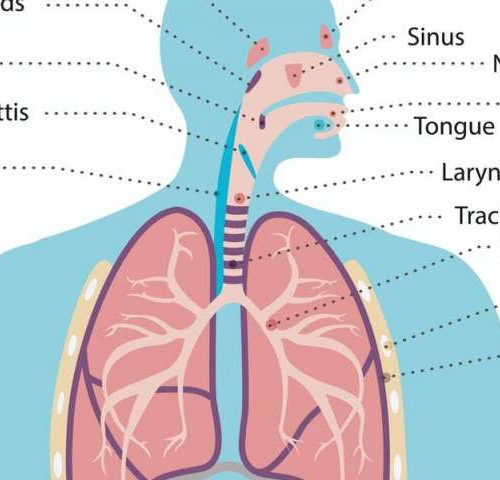A metallic taste in the mouth, also called dysgeusia or parageusia, is a taste disorder in which a person perceives the taste of metal even though nothing is in the mouth. It can sometimes occur alongside fatigue, which is a constant feeling of exhaustion and lack of energy. A metallic taste by itself may be...
Tag: <span>dizziness</span>
Dry, wet, barking, hacking: A guide to coughs in the time of coronavirus
by Maja Husaric and Vasso Apostolopoulos, The Conversation Coughs are a valuable diagnostic tool, but how do you know if you’ve got a relatively harmless cough, a coronavirus cough—or something else altogether? An occasional cough is healthy, but one that persists for weeks, produces bloody mucus, causes changes in phlegm color or comes with fever,...
Examining associations between hearing loss, balance
What The Study Did: About 3,800 adults 40 and older in South Korea participating in a national health survey were included in this analysis that examined associations between hearing loss and a test of their ability to retain balance. Age-related hearing loss affects the inner ear, which may increase the risk of dizziness. Authors: Sung-Won...
Allergies and dizziness: What’s the link?
An allergy is the immune system’s reaction to a foreign substance, or allergen, in the body. Typical symptoms of seasonal and environmental allergies include a runny nose, sneezing, sinus congestion, and itchy eyes. A less common symptom of allergies is vertigo, which is a severe form of dizziness. A person may experience this symptom during the...
CAVA Device Spots Nystagmus to Diagnose Dizziness
Dizziness is a common condition but its underlying causes can be very difficult to diagnose. It is usually unpredictable and doesn’t last very long, so by the time a patient presents to the physician everything checks out as normal. Detecting nystagmus (uncontrolled eye movements) is a pretty reliable way of diagnosing peripheral vestibular disorders, but the randomness and rarity...
New promising compound against heart rhythm disorders and clogged arteries
The pharmacological agent outperforms current drugs in most of the cases, show multiple experiments PENSOFT PUBLISHERS A new pharmacological agent demonstrates promising results for the prevention of a wide range of heart rhythm disorders, including both cardiac and brain injury-induced arrhythmias. Furthermore, the compound (SS-68) demonstrates significant activity in conditions of reduced blood flow to...
New innovation improves the diagnosis of dizziness
Half of over-65s suffer from dizziness and problems with balance. But some tests to identify the causes of such problems are painful and can risk hearing damage. Now, researchers from Chalmers University of Technology, Sweden, have developed a new testing device using bone conduction technology, that offers significant advantages over the current tests. IMAGE: THE NEW...
How to get rid of an amoxicillin rash
Amoxicillin is an antibiotic used to treat bacterial infections. The drug comes in many different forms, including capsules, tablets, and liquid. One of the common side effects of amoxicillin is a skin rash. Amoxicillin comes from penicillin, which is known to cause allergic reactions in some people.An amoxicillin rash can be mild or severe, depending on...
Mechanism controlling multiple sclerosis risk identified
While the DNA sequence remains the same throughout a person’s life, the expression of the encoded genes may change with time and contribute to disease development in genetically predisposed individuals. Researchers at Karolinska Institutet in Sweden have now discovered a new mechanism of a major risk gene for multiple sclerosis (MS) that triggers disease through so-called epigenetic...
- 1
- 2


